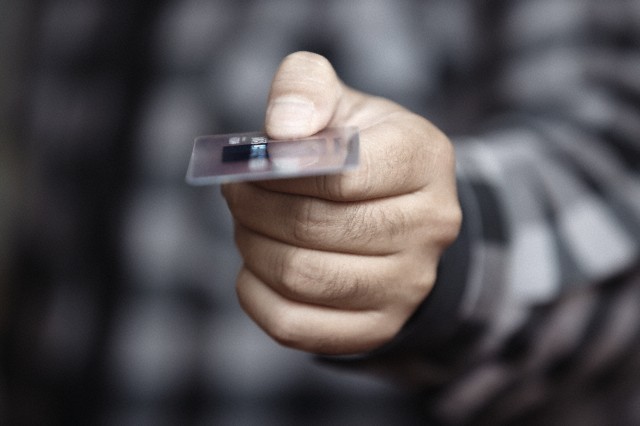Can Creditors Try to Collect a Debt After Bankruptcy in NJ?
Filing for bankruptcy can be a complicated process. If you’ve recently gone through this process, you might be wondering whether creditors can continue their efforts to collect the debt that led to your bankruptcy filing.
In New Jersey, once a debtor has successfully completed the bankruptcy process and received a discharge, creditors are generally prohibited from attempting to collect any debts that were included in the bankruptcy filing. The discharge is a legal order that releases the debtor from personal liability for certain debts, preventing creditors from pursuing further collection actions. This protection ensures that debtors can have a fresh financial start without the constant threat of creditor harassment or collection attempts for discharged debts.
If you need help with your bankruptcy case, seek assistance from our experienced New Jersey bankruptcy attorneys at Young, Marr, Mallis & Associates by dialing (609) 755-3115.
Debt Collection After Filing for Bankruptcy in New Jersey
In New Jersey, as in most states, the automatic stay goes into effect as soon as you file for bankruptcy. This automatic stay is a powerful legal injunction that prohibits creditors from taking any action to collect debts from you. This means that creditors cannot initiate or continue any collection activities, including phone calls, letters, lawsuits, wage garnishments, or repossessions. The automatic stay is put in place to give you breathing room and protection from creditor harassment while your bankruptcy case is being resolved.
After your bankruptcy case has been successfully completed and a discharge has been granted, most of your eligible debts will be wiped out. This means that you are no longer legally obligated to repay those debts, and creditors are prohibited from attempting to collect them. The discharge is a court order that prevents creditors from pursuing any further collection actions on the debts that were included in your bankruptcy filing. It’s important to note that certain types of debts, such as student loans, child support, and certain tax debts, may not be dischargeable in bankruptcy.
However, it’s crucial to be aware that not all debts are automatically dischargeable, and some creditors might challenge whether certain debts are dischargeable in your bankruptcy case. For instance, if a creditor believes that you incurred a debt through fraudulent activity or willful misconduct, they might file an adversary proceeding to have that debt declared as non-dischargeable. In such cases, the court will evaluate the creditor’s claims and make a determination.
If you find yourself in a situation where a creditor is attempting to collect a debt that should have been discharged through bankruptcy, it’s important to act quickly. You can inform the creditor about your bankruptcy discharge and provide them with the necessary documentation to support your claim. If the creditor continues its collection efforts, then you may need to involve our Marlton, NJ bankruptcy lawyers to address the issue legally.
Rules for Debt Collection Practices in New Jersey
Debt collection practices in New Jersey are governed by both state and federal laws. These laws exist to ensure fair and ethical treatment of individuals by debt collectors. Accordingly, understanding the rules that pertain to debt collection is important for both debtors and creditors.
Fair Debt Collection Practices Act (FDCPA) Protections
The Fair Debt Collection Practices Act (FDCPA) is a federal law that sets guidelines for how debt collectors can interact with debtors. It prohibits abusive, deceptive, and unfair practices in debt collection. Under the FDCPA, debt collectors are restricted from using tactics such as harassment, false statements, and unfair practices to collect debts. They are also required to provide accurate and clear information about the debt and the debtor’s rights.
State-Level Regulations
In addition to federal laws, New Jersey has its own set of regulations known as the New Jersey Fair Debt Collection Practices Act (NJFDCPA). This state law mirrors many provisions of the FDCPA but also includes some additional protections. For instance, the NJFDCPA extends the definition of “debt” to cover consumer leases and transactions involving money, property, insurance, and services. It also imposes specific requirements on debt collectors, such as providing validation notices within five days of initial communication and disclosing the debtor’s right to dispute the debt.
Limitations on Collection Actions
New Jersey law sets a statute of limitations on debt collection actions. For most debts, including credit card debts and personal loans, the statute of limitations is six years. This means that creditors cannot file a lawsuit to collect a debt after the six-year period has expired. However, it’s important to note that making a payment or acknowledging the debt could potentially restart the clock on the statute of limitations.
Other Prohibited Practices
Debt collectors in New Jersey are prohibited from engaging in various practices that could harm or mislead debtors. These include using profane or obscene language, making excessive and harassing phone calls, making false representations about the debt or the consequences of not paying, and threatening legal action that they do not intend to take. Debtors have the right to request verification of the debt, dispute the debt, and request that the debt collector cease communication.
Taking Action Against Improper Collection Practices in New Jersey
Improper collection practices have serious consequences for debtors. These practices, like aggressive communication and threats, make debtors anxious and stressed. Debtors who are subject to these practices might unnecessarily spend money out of fear. Further, they could face unfair legal problems.
If you believe that a creditor or debt collector has violated your rights by engaging in improper collection practices, it’s essential to take action immediately. Start by documenting the details of the communication, including dates, times, and the content of conversations. Afterwards, you should get in touch with the team at our firm. We can help send a written dispute letter to the creditor, outlining the violations and demanding resolution. If the issue persists, we can provide valuable guidance on how to proceed and protect your rights effectively.
Contact Our New Jersey Bankruptcy Lawyers Today for Help with Your Case
Get assistance from our experienced Cherry Hill, NJ bankruptcy attorneys by calling Young, Marr, Mallis & Associates at (609) 755-3115.






























